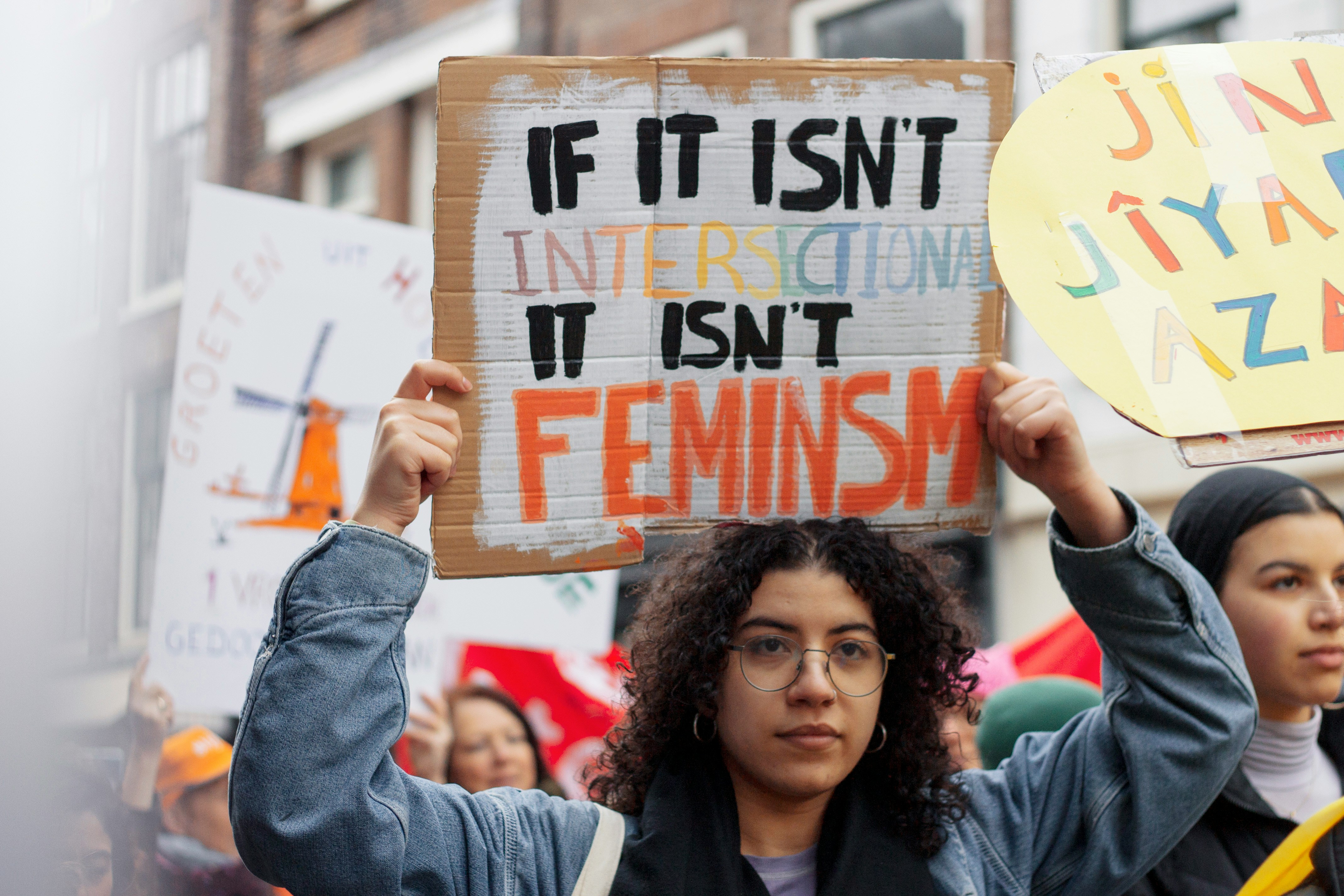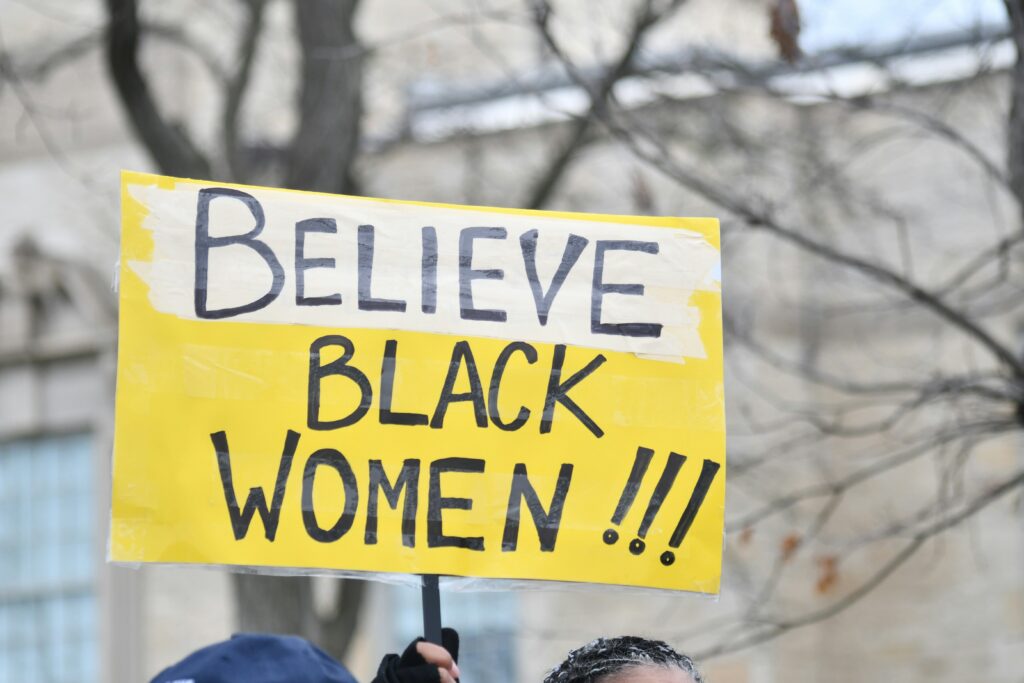Black and Brown migrant women in the UK face a higher risk of femicide, yet their stories are hidden by poor data and systemic neglect. A decolonial feminist lens reveals how race, class and migration intersect to put lives in danger.
by Char-Lee Lewis
The UK government confirmed that there is an overrepresentation of minority ethnic women in the UK who are victims of femicide; however, the rate may be higher because the police do not always record ethnicity data accurately. Femicide is defined as ‘the killing of a woman because she is a woman’. The majority of femicidal murders within the UK are committed by the woman’s current or previous intimate partner.
In the UK, Black and Brown women, specifically those who are migrants, inhabit intersecting systems of marginalisation, including systemic colonial exclusionary practices that contribute to their vulnerability to femicide.
The UK’s Femicide Rate: How Many Women?
Official figures show that there were 108 domestic homicides in the year ending March 2024; of these, 83 were women and 25 were men. 66 of these victims were killed by a partner or ex-partner. The risk of serious assault and death is highest for a woman after she leaves an abusive relationship. According to the UK femicide Census, 38% of women killed by their ex-partner from 2009 to 2018 were killed within the first month of separation, and 89% in the first year. Furthermore, there were 1.35 million domestic abuse-related incidents recorded by the police.
The UK often homogenises women; therefore, race-disaggregated data is limited. The available disaggregated data indicate some disparities for ethnic minorities; in March 2023, women of Mixed Ethnic backgrounds had the highest reporting rate. Asian women had the lowest at 2%, White women were second at 4.7%, and Black women had the third highest at 3.5%. Furthermore, data indicate that only 20% of domestic abuse victims report the crime to the police, indicating that the numbers could be higher.

In the year ending March 2023, the homicide rate for women was at 10.1% for Black women, 7.7% Asian women, 2.2% Mixed ethnicity women and White women had the highest homicide rate at 78%. However, Black women having a murder rate of 10.1% is disproportionate in comparison to the UK’s population, as according to the 2021 Census, 81.7% of the UK population were White and 4% were Black. It is also not clear from the data how many of these murders could be deemed as femicide or were a result of domestic homicide. Research conducted on domestic abuse within the UK found that suspects from minoritised communities were overrepresented in the most harmful domestic abuse cases, and within the Asian community, domestic violence offences, including femicide, are less likely to be solved.
Underreporting of domestic violence in the UK minority ethnic communities is driven in part by racialised minoritised people’s lack of trust in the police, stemming from perceptions that the criminal justice system disproportionately targets and criminalises Black and Brown individuals. In the House of Lords last year, the distrust of the police amongst migrant women was a matter of debate, as after contacting the police to report domestic violence crimes, migrant women in the UK have often been reported to immigration enforcement. This contributes to Black and Brown women who are migrants remaining silent when enduring abuse, as they fear the potential of being detained or even deported.
Intersectional Risks: Race, Class and Migration Status
Black and Brown migrant women within the UK often face intersecting forms of structural vulnerabilities:
Economic precarity: 42.9 % of Black and Brown women are more likely to be concerned about debt in comparison to 37.1% of White women, making Black and Brown women more susceptible to economic coercion and the inability to leave abusive relationships.
Criminalisation: Black, Asian, Minoritised and Migrant women often encounter double disadvantages in the UK criminal justice system, encountering punitive treatment when they are victims of domestic abuse.
Barriers to support: Women from minority ethnic communities and migrant backgrounds experience exclusion from domestic abuse services, whether due to language, cultural obstacles or fear of immigration enforcement.
These are only some of the intersecting factors that not only heighten minority ethnic women’s vulnerability to femicide but also diminish the access to potential support that could save lives.

UK’s Commitment Vs. Domestic Realities
International women’s rights instruments such as the Convention on the Elimination of All Forms of Discrimination Against Women (CEDAW) have historically treated women as a homogenous group. However, contemporary interpretations of CEDAW have evolved, and the CEDAW Committee now emphasises that discrimination against women is rarely based on gender disparity alone; rather, gender discrimination can be intersecting with other factors, including race and migration status. Femicide stems from gender discrimination; however, for black and brown women in the UK, it often intersects with other marginalisation factors.
The UK has fostered systemic exclusionary practices against migrant women, despite their obligations under CEDAW. The CEDAW Committee emphasised that the UK’s Domestic Violence Act 2021 fails to provide migrant women with sufficient protection from domestic violence. According to the CEDAW Committee, the Domestic Violence Act does not provide equal protection under the law for migrant women and risks being subjected to immigration enforcement upon reporting the abuse. One of the CEDAW Committee’s recommendations to the UK centres on the importance of providing migrant women with adequate access to effective remedies and means of protection, including shelters, legal services, and support.
The Committee’s inclusive recommendations could contribute to saving migrant women from atrocities such as femicide.

The lack of race disaggregated data for femicide, the criminal justice distrust and legal insecurity for migrant women all signal that historical colonial marginalisation remains entrenched within the UK.
Decolonial feminist scholar María Lugones reminds us that “unlike colonisation, the coloniality of gender is still with us; it is what lies at the intersection of gender, class and race…and are central constructs to the modern system of power”. Colonial logics that speak to the devaluation of women and racial degradation continue to shape social and legal systems, and unless UK law and institutions actively dismantle these patterns, the UK’s policies risk perpetuating silences around the lives of black and brown women.

Char-Lee Lewis recently completed her PhD in International Human Rights Law at the University of Leicester, where her research examined femicide in Jamaica through a decolonial feminist lens. She also holds an LLM from Leicester, with a dissertation on breast ironing in Cameroon, and an LLB (Hons) in Law from the University of Derby.



